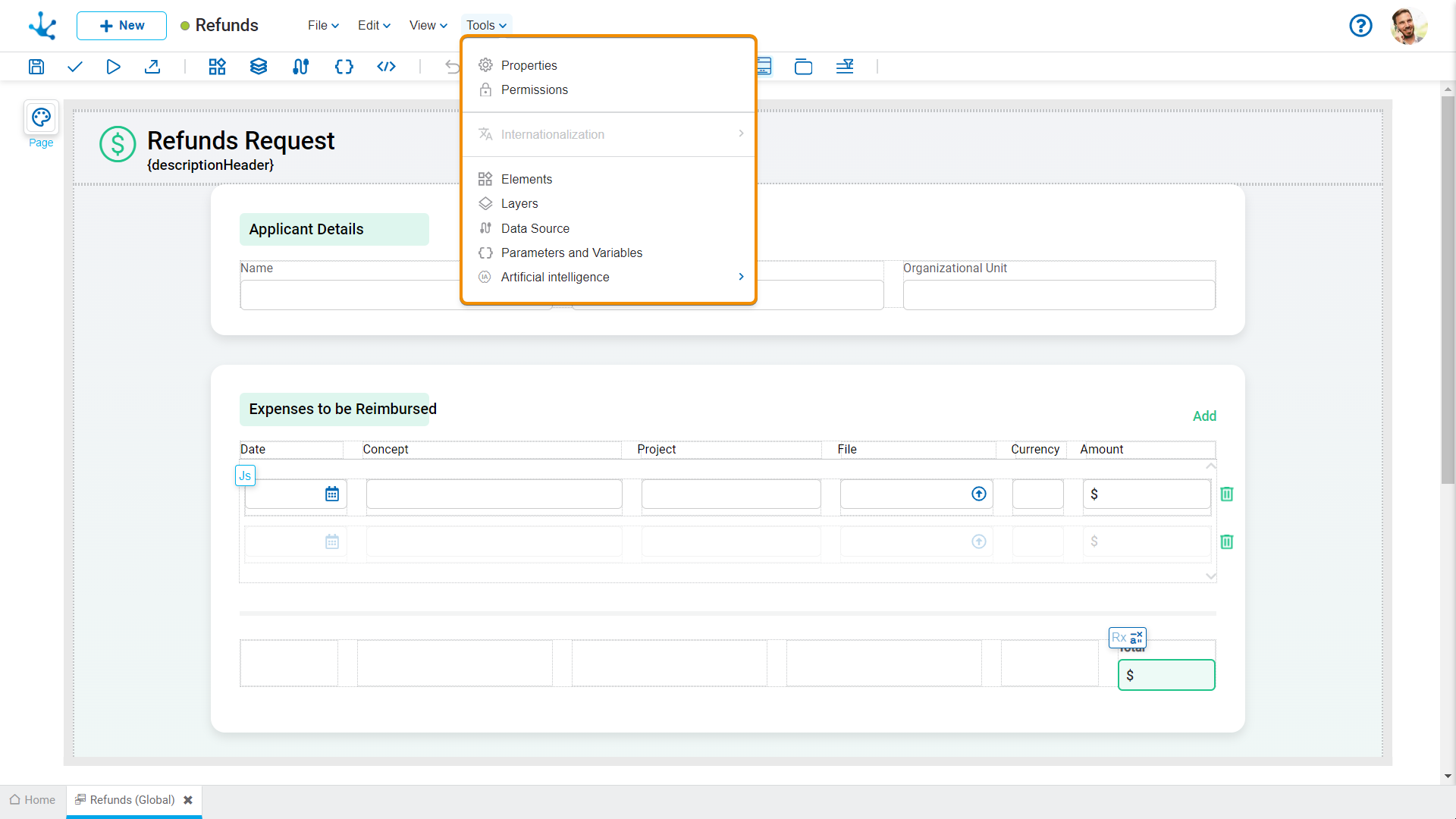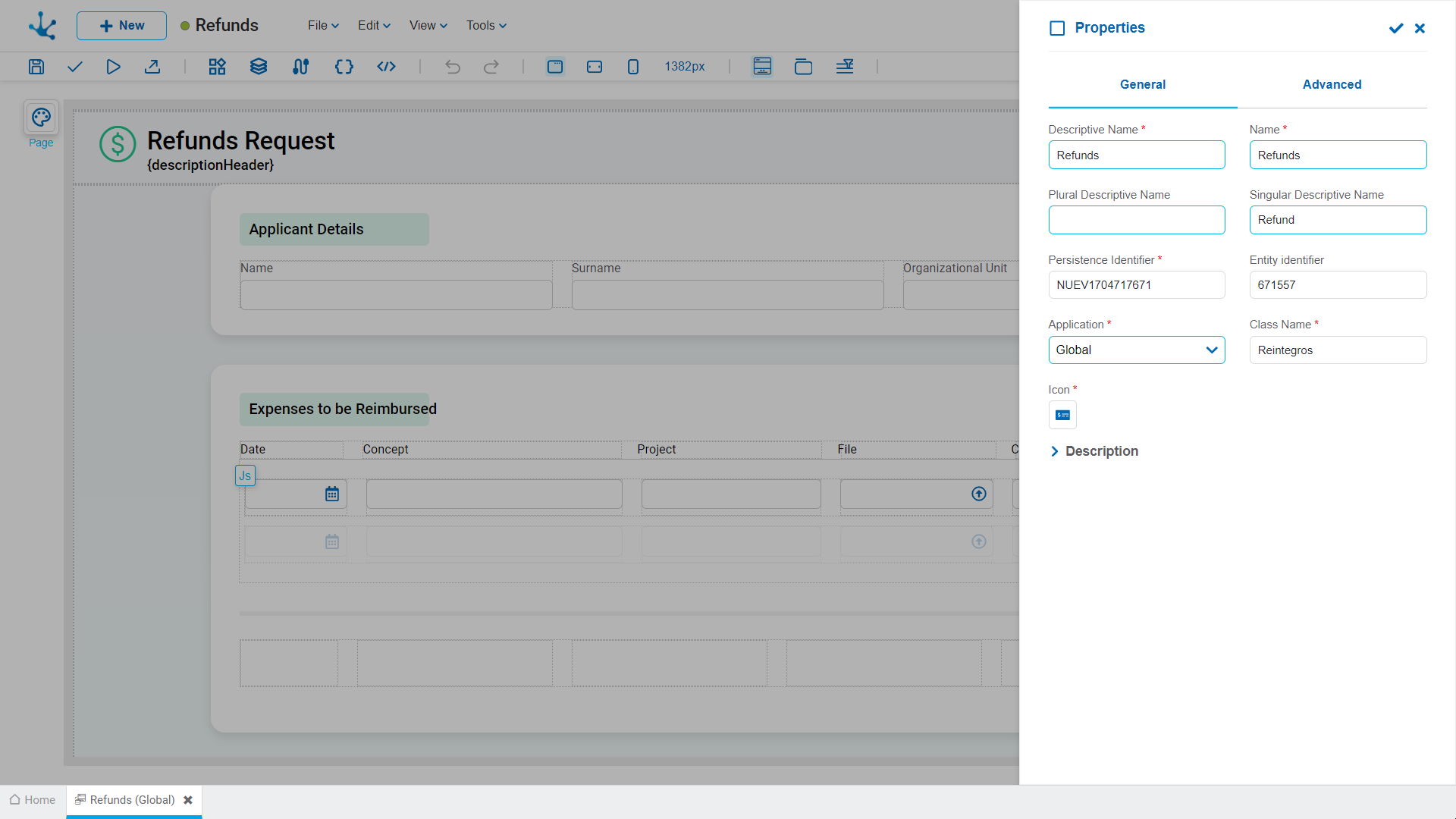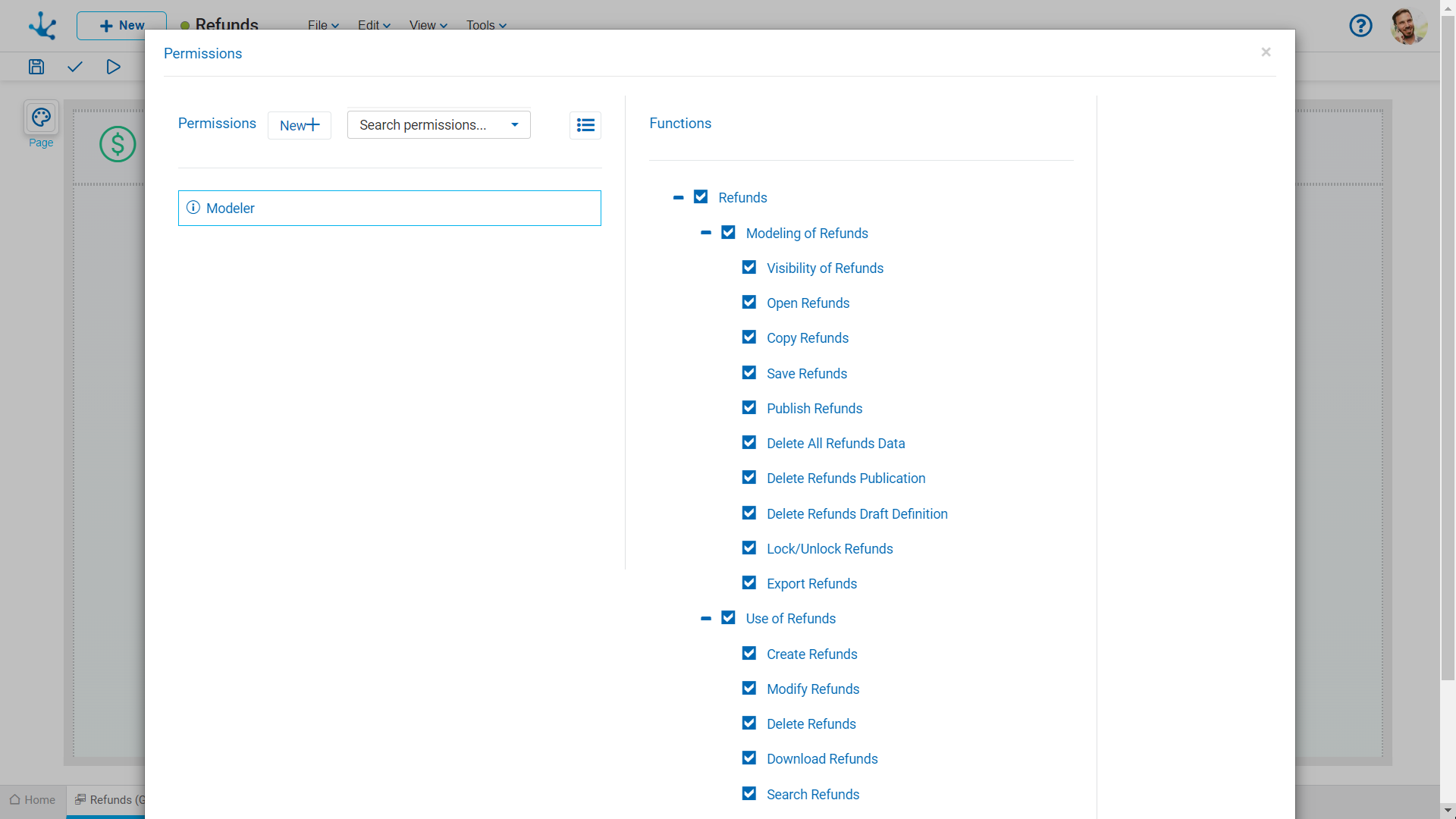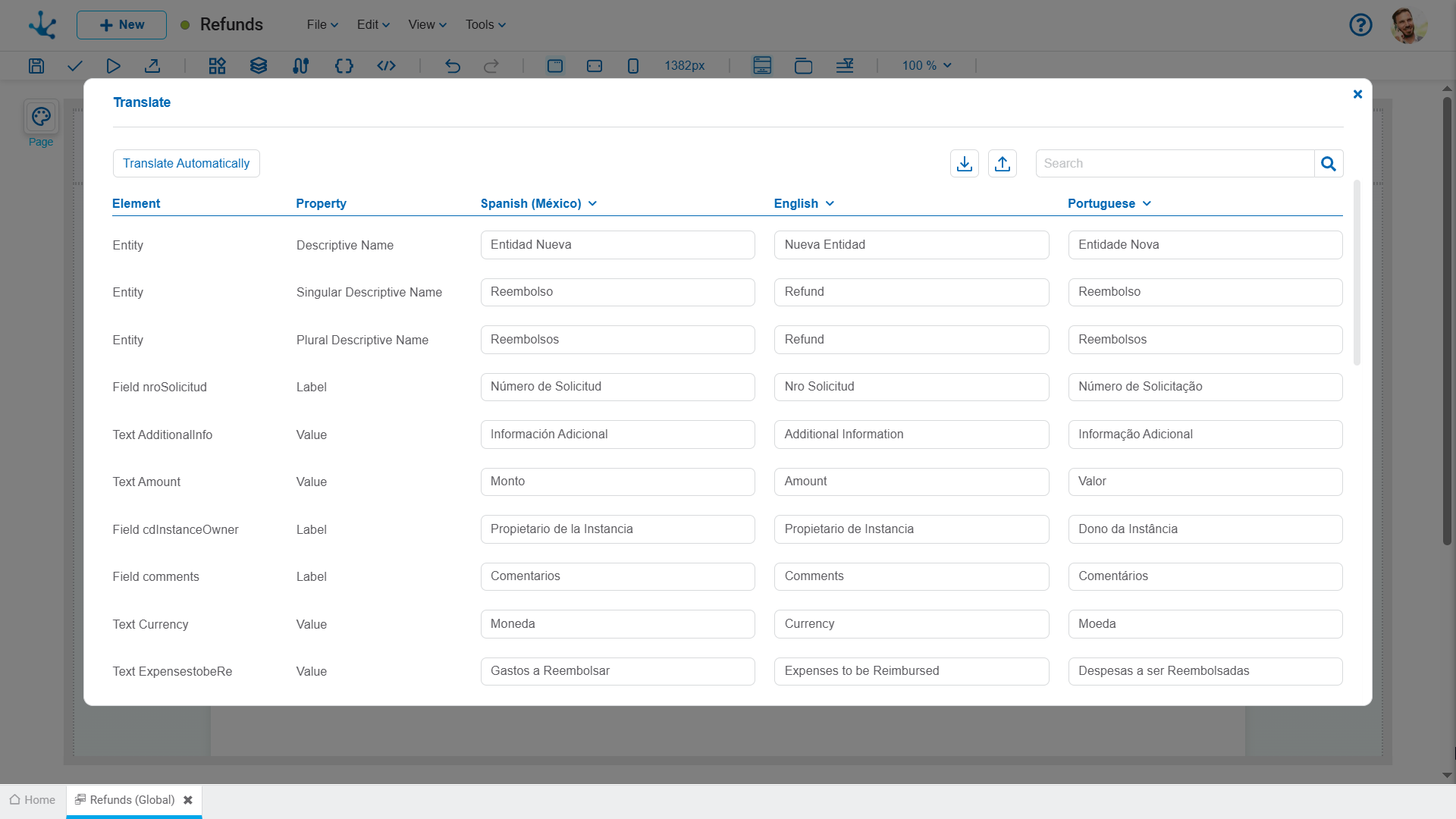Tools Submenu
This submenu is opened by clicking on the “Tools” option and it allows modeling entity properties and permissions, as well as different modeling functionalities.

![]() Properties
Properties
This option allows opening the properties panel of the entity to model its features.

Allows to assign the security functions for use and modeling of the object to the existing permissions or to new permissions that the user creates, without having to go to the permission settings option from the menu.
Sections
●Permissions: Permissions to which object functions are assigned.
●Security Functions: Represents the total set of security functions, modeling and use of the object. Those that are marked are the ones included in the selected permission.
By default, all security functions for a new object are assigned to the permission Modeler.
Users who are assigned the permissions have access to the functions included in it.

 Opens a panel to create a new permission and once created, the security functions included in it must be selected .
Opens a panel to create a new permission and once created, the security functions included in it must be selected .
 Allows to select a permission from a list and enables the input of characters to filter the values in the list.
Allows to select a permission from a list and enables the input of characters to filter the values in the list.
 Opens the wizard to select a permission and once chosen, the necessary object security functions must be checked.
Opens the wizard to select a permission and once chosen, the necessary object security functions must be checked.
To unrelate a permission from the object, hover the cursor over the permission and press the icon  . If there are functions selected for that permission, they must be unchecked in order to delete it.
. If there are functions selected for that permission, they must be unchecked in order to delete it.
Modeling Security Functions
•Visibility: Allows to display the object in the Deyel modeler grid.
•Open: Allows to open the object from the Deyel modeler.
•Export: Enables the operation to export the object from the tools submenu of the expanded menu.
•Save: Enables the operation of saving modifications made to the object.
•Publish: Enables the operation of publishing the object leaving its state as "Published".
•Delete publication: Enables the operation of deleting the object publication leaving its state as "Draft".
•Delete draft definition: Enables the operation of deleting the object.
Use Security Function
•Create: Enables the operation of creating an instance of the object.
•Modify: Enables the operation of modifying an instance of the object.
•Delete: Enables the operation of deleting an instance of the object.
•Download: Enables the operation of downloading the instances of the object in Excel.
•Search: Allows using the grid to show the entity instances.
•Show: Enables the operation of showing an instance of the object.
•Show/Modify/Delete Private Instance: They enable user operations on a private instance, regardless of the organizational unit they belong to and the rest of the criteria that define the privacy.
The security functions of private instances are displayed if the following properties are checked in the entity Hierarchical Privacy and Privacy by Permissions.
When an entity is configured as anonymous, the use function is automatically assigned to the "Anonymous" permission.
![]() Internationalization
Internationalization
The "Internationalization" option is enabled when the property Internationalize is activated. To access the translation panel, it is necessary to select "Internationalization" and then choose "Translate".

In this panel, all the translatable properties of the object are displayed, along with their content in the original language, and translations in the other available languages can be entered manually.
If a value is modified in the original language column, the change is applied directly to the object's property.
In the header of each language column, a menu that allows selecting another language can be displayed, updating the column with its contents.
Options Available in the Top Margin
 Generates translations from the original language to other languages using artificial intelligence.
Generates translations from the original language to other languages using artificial intelligence.
![]() Downloads an Excel file with the contents of the translation panel.
Downloads an Excel file with the contents of the translation panel.
![]() Allows selecting an Excel file to import translations, making it easier to manage large volumes of content.
Allows selecting an Excel file to import translations, making it easier to manage large volumes of content.
![]() Filters the contents of columns based on the characters entered in the search field.
Filters the contents of columns based on the characters entered in the search field.
![]() Elements
Elements
This option allows opening the elements panel that enables selecting those elements that will be incorporated into the entity.
![]() Layers
Layers
This option allows opening the layers panel of the entity, and displaying its elements organized hierarchically.
![]() Data Source
Data Source
This option allows opening the data source panel from where ,the data sources that will be used on the entity can be defined.
![]() Parameters and Variables
Parameters and Variables
This option allows opening the parameters and variables panel, from where the ones that will be used on the entity can be defined.
![]() Artificial Intelligence: Generation of Instances with AI
Artificial Intelligence: Generation of Instances with AI
This option allows opening the Generation of instances with AI allowing automatic creation of instances of the modeled entity using artificial intelligence.
The artificial intelligence engine integrated with Deyel is capable of generating this data, which can be used in the design and testing stages, during the application development cycle.




